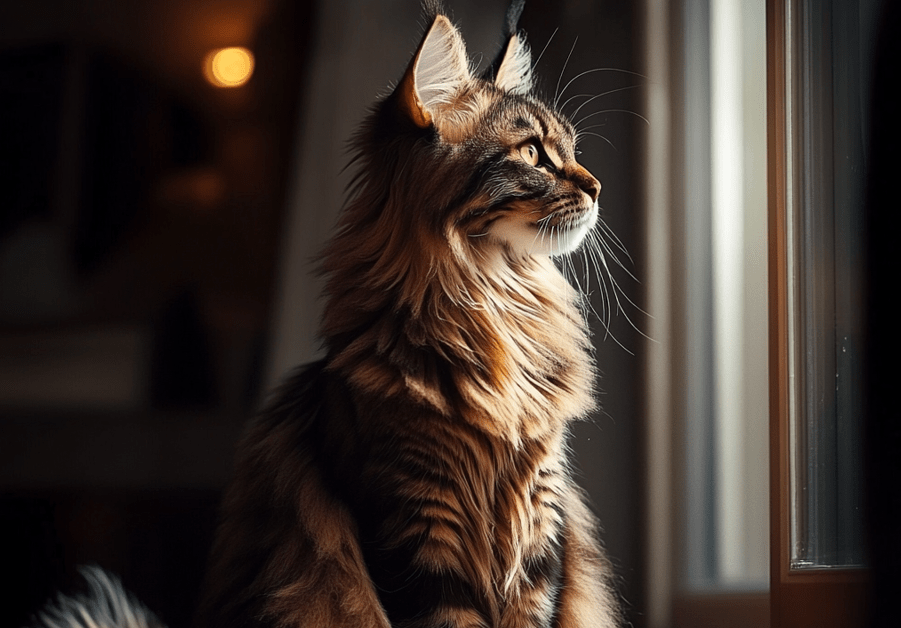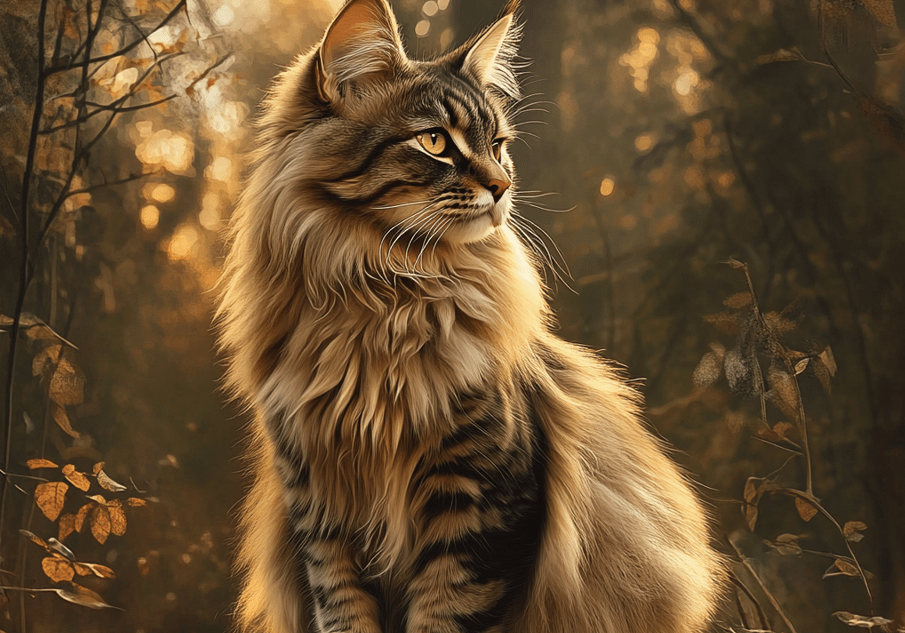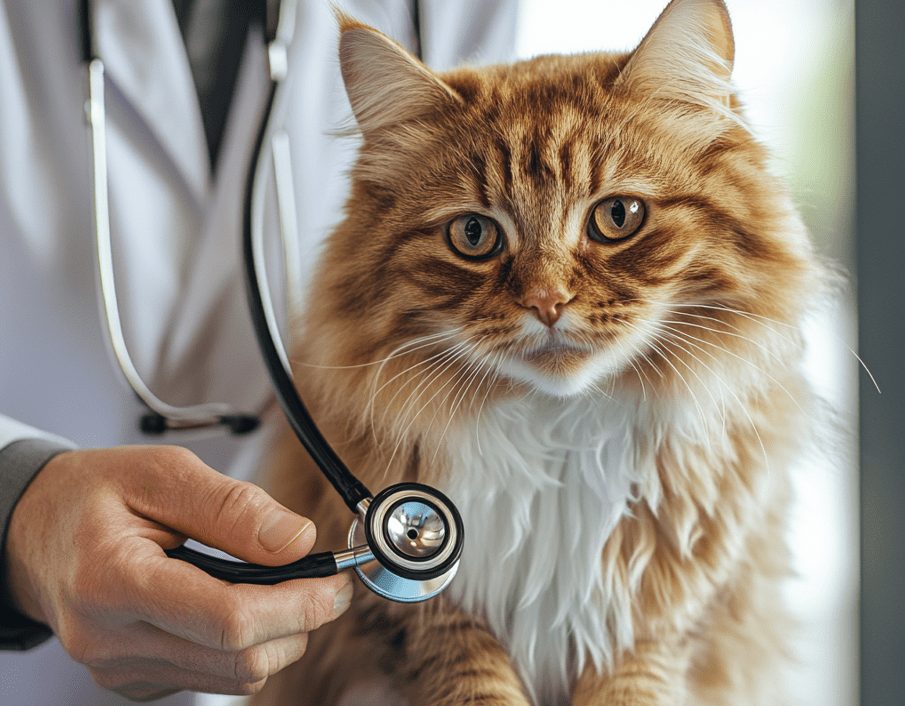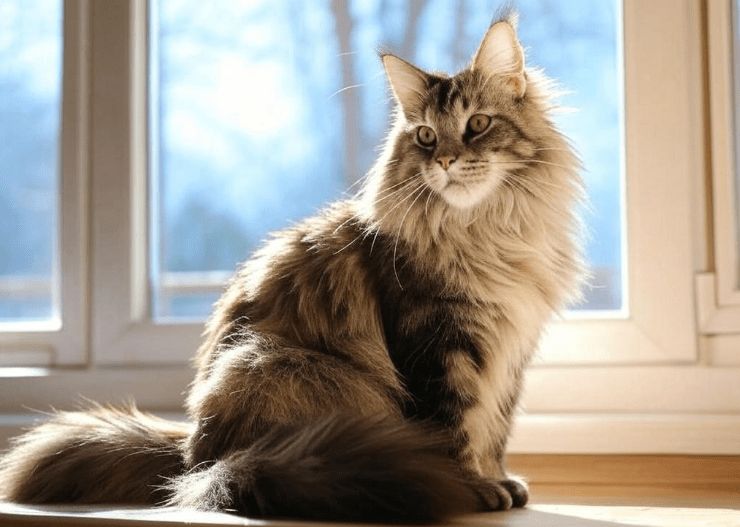
Maine Coon cats are known for their majestic size, friendly personalities, and luxurious coats, but their unique physiology also demands special attention to their diet, particularly for Maine Coon digestive health. As one of the largest domesticated cat breeds, Maine Coons have specific nutritional needs to support their robust bodies and sensitive digestive systems. Choosing the right dry food can make a significant difference in maintaining their gut health, preventing digestive issues, and ensuring they thrive. In this comprehensive guide, we’ll explore the best dry foods for Maine Coon digestive health, offering insights into their dietary needs, key ingredients to look for, and expert tips to keep your gentle giant healthy and happy.
Why Maine Coon Digestive Health Matters
Maine Coons are prone to certain digestive sensitivities due to their large size and active metabolism. Their digestive systems can be affected by poor-quality diets, leading to issues like diarrhea, constipation, or even more serious conditions such as inflammatory bowel disease (IBD). A well-balanced diet tailored to their needs can promote optimal digestion, nutrient absorption, and overall well-being. By focusing on Maine Coon digestive health, you can help your cat avoid discomfort and maintain their playful, affectionate nature.
Common Digestive Issues in Maine Coons
Before diving into the best dry foods, it’s important to understand the digestive challenges Maine Coons may face:
Food Sensitivities: Maine Coons may develop sensitivities to certain ingredients, such as grains or artificial additives, leading to upset stomachs or allergies.
Hairballs: Their long, thick coats make Maine Coons prone to hairballs, which can cause digestive blockages if not managed properly.
Slow Digestion: Due to their size, Maine Coons may have slower digestion, increasing the risk of constipation.
Obesity: Overfeeding or low-quality diets can lead to weight gain, putting stress on their digestive system and overall health.
Addressing these issues through proper nutrition is key to supporting Maine Coon digestive health.
What to Look for in Dry Food for Maine Coon Digestive Health
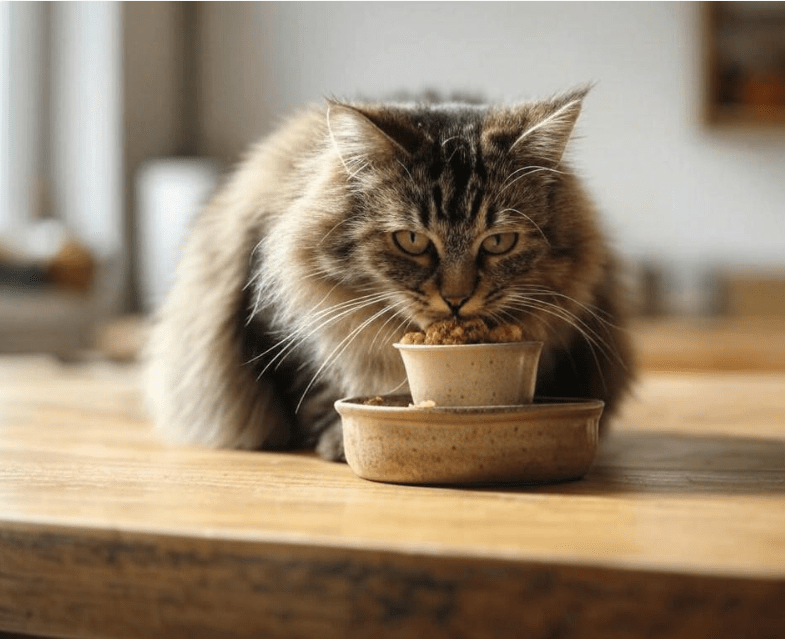
Not all dry foods are created equal, especially when it comes to supporting the unique needs of Maine Coons. Here are the essential factors to consider when selecting dry food for optimal Maine Coon digestive health:
1. High-Quality Protein Sources
Maine Coons are obligate carnivores, meaning their diet should primarily consist of animal-based proteins. Look for dry foods that list real meat (e.g., chicken, turkey, or fish) as the first ingredient. High-quality proteins are easier to digest and provide the essential amino acids needed for muscle maintenance and overall health.
2. Digestible Carbohydrates
While Maine Coons require minimal carbohydrates, some dry foods include carbs for energy. Opt for digestible sources like sweet potatoes, peas, or pumpkin, which are less likely to cause digestive upset compared to grains like corn or wheat.
3. Fiber for Gut Health
Fiber plays a crucial role in promoting regular bowel movements and preventing hairballs. Look for dry foods with moderate levels of natural fiber from ingredients like beet pulp, psyllium, or cellulose. Too much fiber, however, can cause diarrhea, so balance is key.
4. Probiotics and Prebiotics
Probiotics (beneficial bacteria) and prebiotics (food for those bacteria) support a healthy gut microbiome, improving digestion and nutrient absorption. Dry foods fortified with probiotics like Lactobacillus or prebiotics like chicory root can enhance Maine Coon digestive health.
5. Limited Ingredients for Sensitivities
Maine Coons with food sensitivities benefit from limited-ingredient diets (LID) that reduce the risk of allergic reactions. Avoid foods with artificial colors, flavors, or preservatives, as these can irritate the digestive tract.
6. Omega Fatty Acids
Omega-3 and omega-6 fatty acids, found in ingredients like fish oil or flaxseed, reduce inflammation in the digestive tract and promote a healthy coat, which can minimize hairball formation.
7. Hydration Considerations
Dry food lacks the moisture content of wet food, which can be a concern for Maine Coons prone to urinary or digestive issues. Ensure your cat has constant access to fresh water, and consider supplementing with wet food to support hydration.
Top 5 Dry Foods for Maine Coon Digestive Health
Based on the criteria above, here are five of the best dry foods specifically formulated to support Maine Coon digestive health. These recommendations prioritize high-quality ingredients, digestibility, and nutritional balance.
1. Royal Canin Maine Coon Breed Health Nutrition
Key Features: Specifically designed for Maine Coons, this formula includes highly digestible proteins, prebiotics, and omega fatty acids to support digestive and joint health.
Why It’s Great: The kibble is tailored to the Maine Coon’s large jaws, encouraging chewing to aid digestion and reduce hairballs.
Best For: Maine Coons of all ages with sensitive stomachs.
2. Hill’s Science Diet Adult Sensitive Stomach & Skin
Key Features: Contains easy-to-digest ingredients like chicken and rice, plus prebiotics for gut health and omega-6 fatty acids for coat health.
Why It’s Great: This formula is ideal for Maine Coons with food sensitivities or prone to hairballs.
Best For: Adult Maine Coons with mild digestive issues.
3. Blue Buffalo Wilderness High Protein Grain-Free
Key Features: Grain-free with high-quality chicken protein, sweet potatoes, and LifeSource Bits (antioxidants, vitamins, and minerals).
Why It’s Great: Mimics a natural carnivorous diet, promoting digestion and reducing the risk of grain-related sensitivities.
Best For: Active Maine Coons needing a protein-rich diet.
4. Instinct Limited Ingredient Diet Grain-Free
Key Features: Single protein source (e.g., turkey) and one vegetable, free from common allergens like grains, dairy, and eggs.
Why It’s Great: Perfect for Maine Coons with food allergies or sensitive digestion.
Best For: Cats with severe food sensitivities.
5. Orijen Regional Red
Key Features: Biologically appropriate with 90% animal ingredients, including Angus beef, wild boar, and lamb, plus low-glycemic carbs.
Why It’s Great: High protein and low carb content support digestion and mimic a natural diet.
Best For: Maine Coons needing a premium, whole-prey-inspired diet.
How to Transition Your Maine Coon to a New Dry Food
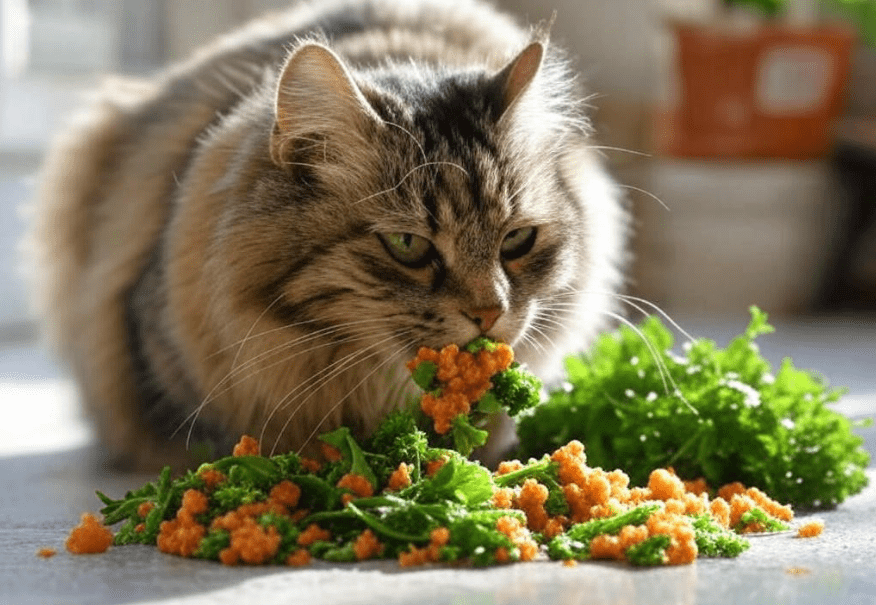
Switching to a new dry food requires a gradual transition to avoid digestive upset. Follow these steps to ensure a smooth change:
Days 1–3: Mix 25% of the new food with 75% of the current food.
Days 4–6: Increase to a 50/50 mix.
Days 7–9: Use 75% new food and 25% old food.
Day 10: Fully transition to the new food.
Monitor your Maine Coon for signs of digestive distress, such as vomiting or diarrhea, during the transition. If issues persist, consult your veterinarian.
Additional Tips for Supporting Maine Coon Digestive Health
Beyond choosing the right dry food, here are expert tips to enhance Maine Coon digestive health:
1. Maintain a Feeding Schedule
Feed your Maine Coon small, regular meals (2–3 times daily) to prevent overeating and reduce the strain on their digestive system. Avoid free-feeding, as it can lead to obesity.
2. Encourage Hydration
Place multiple water bowls around your home or invest in a cat water fountain to encourage drinking. Adding wet food to their diet can also boost moisture intake.
3. Groom Regularly
Brush your Maine Coon’s coat daily to reduce loose hair and prevent hairballs, which can obstruct the digestive tract.
4. Monitor Stool Quality
Healthy stools are firm, well-formed, and consistent. Soft, watery, or infrequent stools may indicate a digestive issue. Consult your vet if you notice changes.
5. Exercise for Digestive Motility
Encourage playtime with toys like feather wands or laser pointers to stimulate digestion and prevent constipation.
6. Regular Vet Checkups
Annual veterinary exams can catch early signs of digestive problems, such as IBD or food intolerances, ensuring timely intervention.
Common Mistakes to Avoid
When managing Maine Coon digestive health, avoid these pitfalls:
Choosing Low-Quality Food: Bargain brands often contain fillers like corn or soy, which can irritate the digestive system.
Ignoring Portion Control: Overfeeding leads to obesity, which strains the digestive tract.
Sudden Diet Changes: Abrupt food switches can cause diarrhea or vomiting.
Overlooking Hydration: Insufficient water intake can exacerbate constipation or urinary issues.
Conclusion
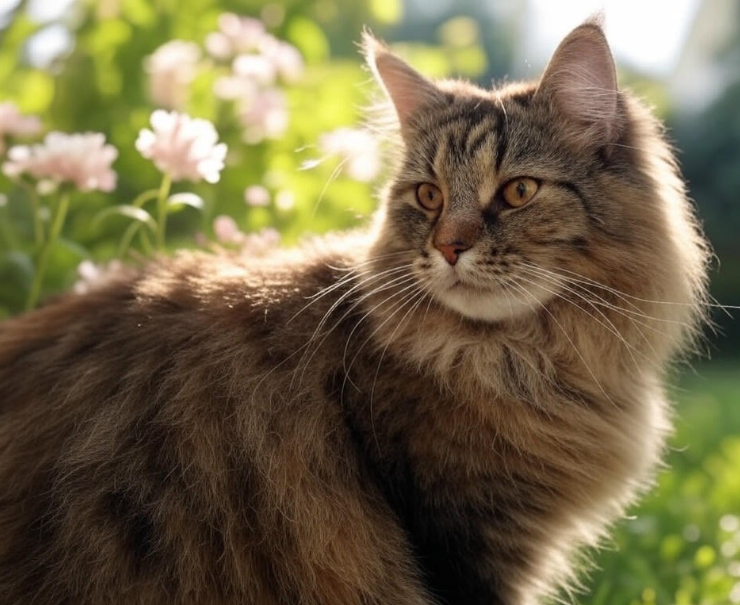
Supporting Maine Coon digestive health starts with choosing the right dry food tailored to their unique needs. By prioritizing high-quality proteins, digestible ingredients, and gut-supporting nutrients like fiber and probiotics, you can help your Maine Coon maintain a healthy digestive system and live a vibrant, active life. The dry foods recommended in this guide—such as Royal Canin Maine Coon Breed Health Nutrition and Instinct Limited Ingredient Diet—offer excellent options to meet these needs. Pair a nutritious diet with proper hydration, regular grooming, and veterinary care to ensure your Maine Coon thrives.
By following the advice in this article, you’ll be well-equipped to make informed decisions about your Maine Coon’s diet and overall well-being. Invest in their digestive health today, and enjoy the companionship of your gentle giant for years to come.

